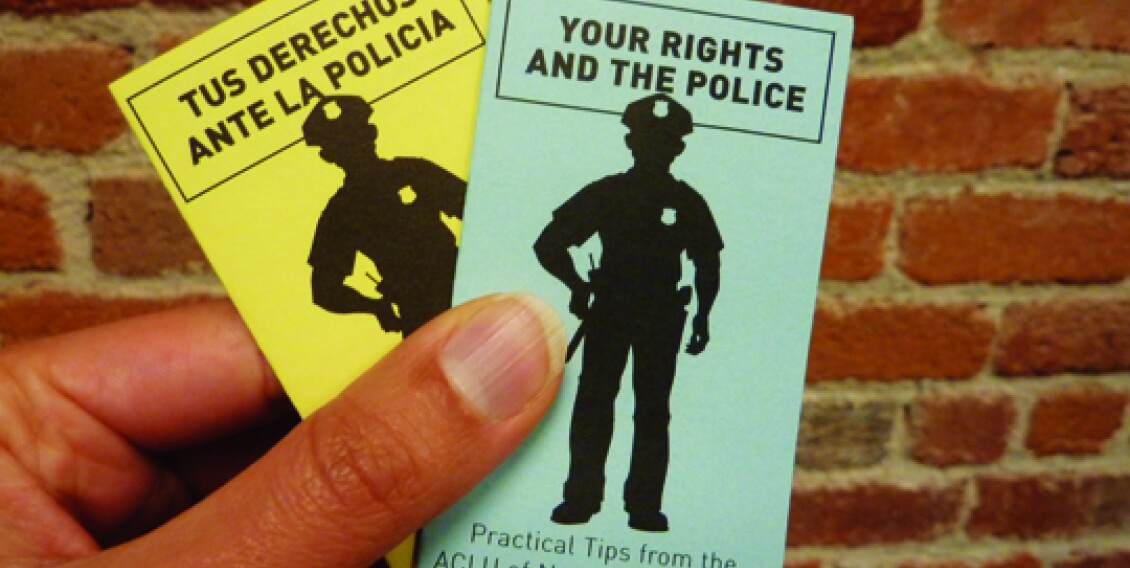Understanding your rights when arrested can be overwhelming and confusing. Being aware of what you’re entitled to is an important step in protecting yourself during a difficult time.
This comprehensive guide outlines the key points of arrest, incarceration, and legal proceedings so that you are armed with the knowledge necessary to make informed decisions about your situation.
From understanding police misconduct to knowing your Miranda Rights, this guide provides all the information needed for those who find themselves facing an arrest or detainment by law enforcement officers.
What to Do When You Are Stopped by the Police

When stopped by the police, it is important to remain calm and collected no matter the situation. It is also essential to remember your rights so you can protect yourself during this stressful time. You have the right to remain silent – even if you are innocent, it is best not to provide information that could be used against you in court.
Ask for an attorney before answering any questions or signing anything, as officers may attempt to get incriminating information from you without consulting a lawyer first.
Additionally, ask for identification from the officer; they are legally required to provide proof of their identity upon request. If arrested, make sure that all necessary documents such as your driver’s license and registration are readily available when asked by law enforcement officers.
Lastly, do not resist arrest even if you believe that there was a mistake made; always seek legal advice afterward if needed.
Understanding Miranda Rights and How They Apply During an Arrest

When someone is arrested, they are typically read their Miranda rights. It is important to understand these rights and how they apply during an arrest. The main purpose of Miranda Rights is to ensure that those who have been arrested know that they can remain silent and not incriminate themselves; any statement made by the person being arrested may be used against them in a court of law.
Furthermore, it guarantees that anyone under arrest has access to legal representation if desired.
The exact wording of the Miranda Rights varies depending on the jurisdiction but generally includes information such as you have the right to remain silent; anything you say can be used against you in a court of law; you have a right to an attorney present during questioning; if you cannot afford one, one will be provided for free before any questioning takes place.
It is crucial for anyone facing an arrest situation to fully comprehend their Miranda rights and take into account how this applies when answering questions or making statements related to the case at hand.
Understanding your legal options during an arrest can help protect your future freedom and provide necessary guidance throughout proceedings should charges arise from the incident in question.
Dealing with Searches, Seizures, and Booking Procedures

When it comes to dealing with searches, seizures, and booking procedures during an arrest, understanding your rights is key. Its important to know what type of search or seizure is legal and that you can refuse a search if no warrant has been issued.
Furthermore, you should also be aware of your right to remain silent and not answer any questions from the police until you have had the chance to speak with a lawyer.
Additionally, arrested individuals need to understand their rights when it comes time for booking; including having access to medical treatment or medication as needed, being able to make phone calls (including one call for a lawyer), and required paperwork upon arrival at jail/prison, and more.
Knowing these rights ahead of time will help ensure that they are properly respected during this process.
Post-Arrest: Protecting Yourself Going Forward
Once you have been arrested, there are several steps you can take to protect yourself going forward. Start by obtaining an attorney to represent your interests and advise on how best to proceed in the legal process.
You should also be aware of your Miranda Rights and other rights provided by the U.S. Constitution — including those that protect against unlawful search and seizure, as well as self-incrimination — so that you can exercise them if necessary.
Additionally, consider speaking with a mental health professional who is trained in trauma-informed care; this will help ensure that any emotional or psychological damage caused by being arrested is properly addressed.
Lastly, make sure to keep records of all court appearances, jail stays, and related documents for future reference or use in appeal cases if needed. Taking these proactive steps after an arrest is essential for protecting yourself going forward during the legal process and beyond.

Conclusion
Understanding your rights when arrested is an important part of protecting yourself. Knowing the law can help you make informed decisions and avoid potential legal trouble.
This comprehensive guide has provided valuable information about what to expect, how to protect yourself in court, and various bail bond options from Hillsborough County Bail Bonds that are available for those facing criminal charges.
Whether you’re accused of a minor or major crime, being aware of your rights can be a powerful tool in defending yourself against unjust prosecution.

